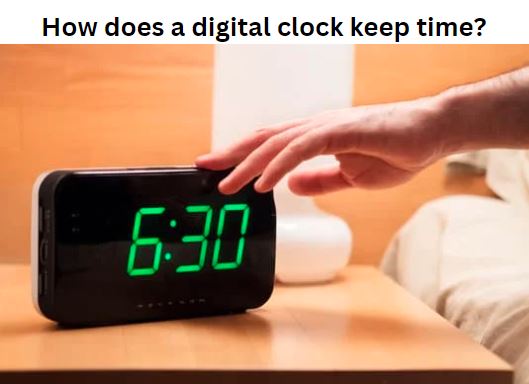Answer
A digital clock keeps time using a quartz crystal oscillator, which generates precise frequency signals to accurately measure and display the passage of time.

Reasoning
Digital clocks keep time using an electronic oscillator regulated by a quartz crystal. Quartz crystals have piezoelectric properties, meaning they generate a consistent electrical signal when subjected to mechanical stress. Here’s the step-by-step process:
- Quartz Crystal Oscillator: The heart of a digital clock is the quartz crystal, which oscillates at a precise frequency when an electric current is applied.
- Frequency Division: The oscillations from the quartz crystal are very fast (typically 32,768 Hz). These signals are divided down to a 1 Hz signal using frequency dividers.
- Time Counting: The 1 Hz signal, representing one second, is used by the digital clock’s microcontroller to count seconds, minutes, and hours.
- Display Update: The counted time is then sent to the digital display, which updates to show the current time.
This process ensures that digital clocks can keep time with high accuracy and stability.
FAQs
What powers a digital clock?
Digital clocks are typically powered by batteries or an electrical outlet.
Why is quartz used in digital clocks?
Quartz is used because of its precise oscillation frequency, which helps maintain accurate time.
How does a digital clock display time?
A microcontroller processes the time signal and updates the digital display, usually using LEDs or LCDs.
Do digital clocks need to be reset?
Yes, they need to be reset after power interruptions unless they have a backup battery.
Can a digital clock lose time?
Yes, but very minimally. Digital clocks are highly accurate but can drift slightly over long periods.
How is the time adjusted in a digital clock?
Time can be adjusted manually using buttons or through a setting menu, depending on the clock’s design.
Do digital clocks use the same technology as analog clocks?
No, digital clocks use electronic oscillators, while analog clocks use mechanical movements.
How does temperature affect a digital clock?
Extreme temperatures can slightly affect the quartz oscillator’s accuracy.
Can digital clocks sync with atomic time?
Some advanced digital clocks can sync with radio signals from atomic clocks for precise timekeeping.
What is the lifespan of a digital clock?
A well-made digital clock can last many years, often over a decade, with minimal maintenance.
 Electrical Engineering World Wiring a Brighter Tomorrow!
Electrical Engineering World Wiring a Brighter Tomorrow!